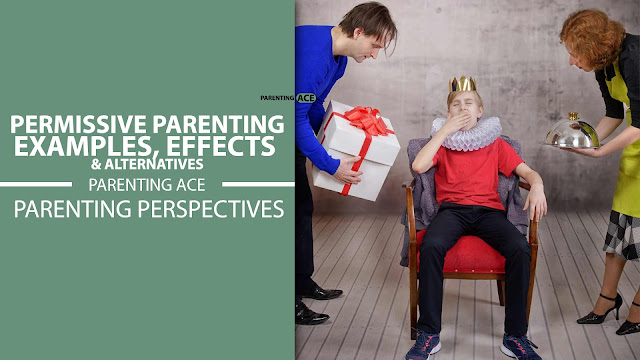Understanding Permissive Parenting: Examples, Effects, and Alternatives
In today's exploration, we delve into the nuanced world of permissive parenting—a style marked by warmth and responsiveness but lacking in boundaries and discipline. Unraveling the complexities of this approach, we unveil its potential effects on children's development and relationships. Through real-life examples and insightful analysis, we navigate the delicate balance between nurturing and enabling, shedding light on the importance of structure and accountability in fostering healthy parent-child dynamics. Join us as we embark on a journey to understand permissive parenting, its implications, and alternative paths towards nurturing resilient, well-adjusted children.
 |
| Understanding Permissive Parenting: Examples, Effects, and Alternatives |
Permissive parenting is a style characterized by high levels of warmth and responsiveness but minimal control and discipline. While it may seem nurturing on the surface, this approach often lacks the necessary boundaries and structure crucial for healthy child development. In this article, we'll explore the nuances of permissive parenting, provide examples to illustrate its manifestations, delve into its effects on children, and discuss alternatives for fostering positive parent-child relationships.
Examples of Permissive Parenting
- Lack of Rules and Boundaries: Permissive parents often have few rules or expectations for their children's behavior. For example, they may allow their child to eat whatever they want, stay up late, or skip chores without consequences.
- Overindulgence: Permissive parents tend to indulge their children's desires and whims, often giving in to their demands for toys, treats, or privileges without considering the long-term consequences. This can lead to children developing a sense of entitlement and difficulty managing impulses.
- Avoidance of Conflict: Permissive parents may avoid conflict and confrontation with their children, opting to prioritize harmony over enforcing rules or addressing problematic behavior. As a result, children may not learn how to navigate disagreements or handle frustration effectively.
- Lack of Accountability: Permissive parents may be reluctant to hold their children accountable for their actions, making excuses for their behavior or rescuing them from the natural consequences of their choices. This can hinder children's development of responsibility and self-discipline.
Effects of Permissive Parenting
- Lack of Self-Discipline: Children raised in permissive households may struggle with self-discipline and impulse control since they have not been taught to adhere to rules or limits.
- Poor Social Skills: Without clear boundaries and expectations, children may have difficulty understanding social norms and interacting appropriately with peers and authority figures.
- Low Self-Esteem: Permissive parenting can undermine children's confidence and self-esteem, as they may not receive constructive feedback or learn to overcome challenges effectively.
- Dependency: Children raised with permissive parenting may become overly reliant on their parents for direction and guidance, lacking the autonomy and confidence to make decisions independently.
Alternatives to Permissive Parenting
- Authoritative Parenting: Characterized by warmth, support, and clear expectations, authoritative parenting provides structure and guidance while also fostering independence and responsibility.
- Consistent Discipline: Implementing consistent consequences for behavior helps children understand the importance of accountability and self-control.
- Open Communication: Encouraging open and honest communication allows parents and children to express their thoughts, feelings, and concerns, fostering mutual respect and understanding.
- Setting Limits: Establishing clear boundaries and expectations helps children learn appropriate behavior and understand the consequences of their actions.
While permissive parenting may offer short-term comfort and flexibility, it can ultimately hinder children's development and well-being in the long run. By understanding the potential consequences of permissive parenting and adopting alternative approaches rooted in consistency, structure, and mutual respect, parents can cultivate healthy parent-child relationships and support their children's growth and independence. #ParentingPerspectives



Comments
Post a Comment